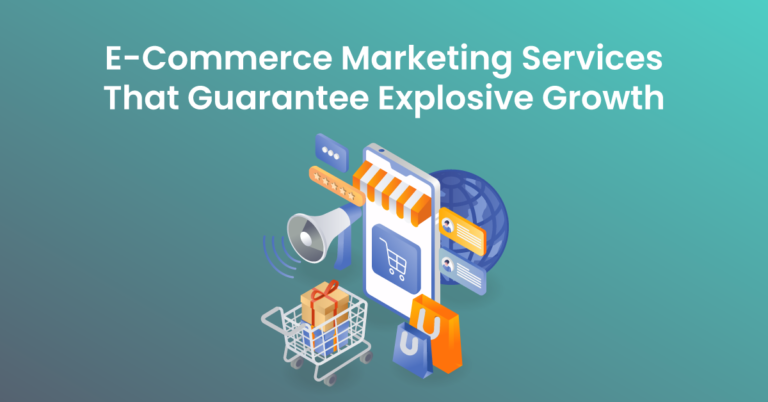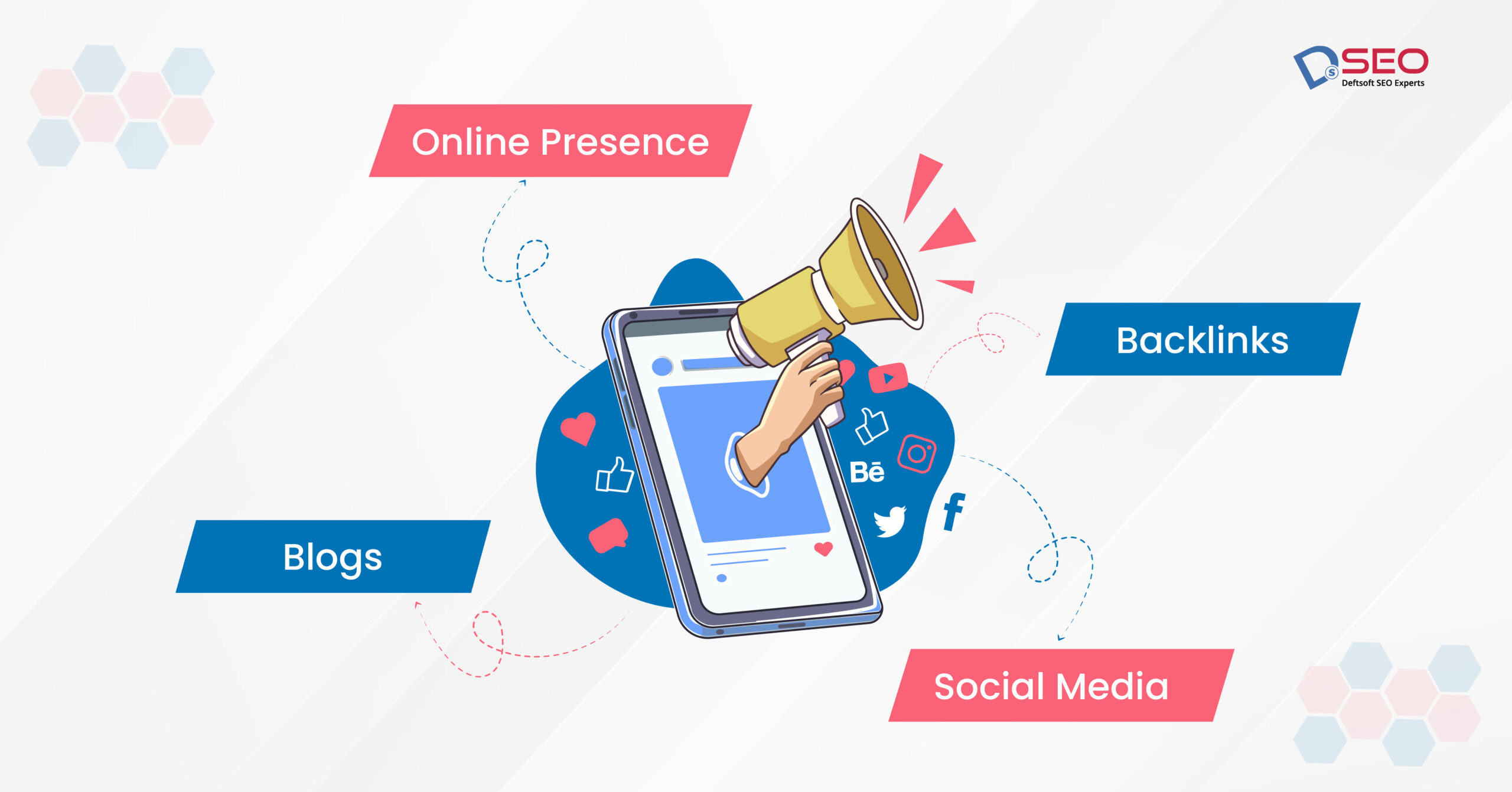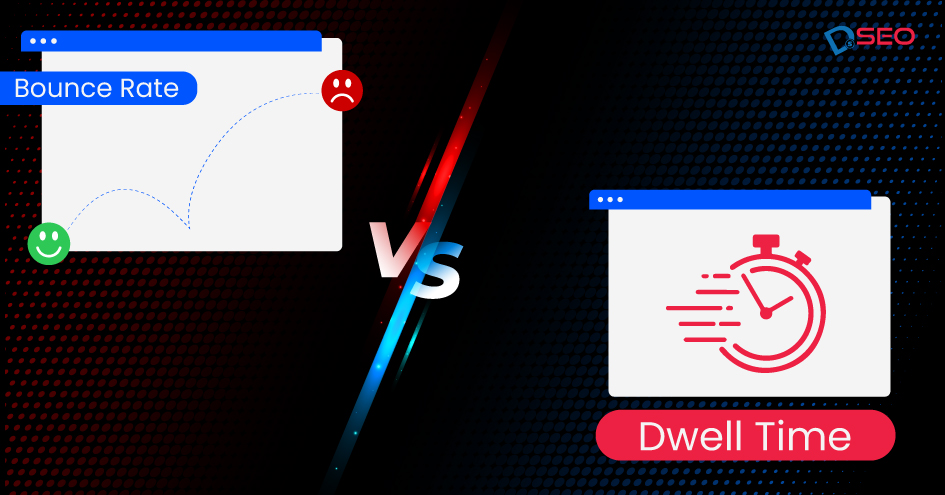
E-Commerce Marketing Services That Guarantee Explosive Growth
July 19, 2023 / E-COMMERCE MARKETING
E-commerce marketing services encompass a range of strategies and tactics to boost online businesses’ visibility, reach, and profitability. Additionally, by implementing targeted e-commerce marketing strategies, businesses can connect with their audience and convert them into loyal customers. Furthermore, leveraging the right e-commerce marketing platform streamlines marketing efforts, providing valuable tools to optimize campaigns. This guide will explore the world of e-commerce marketing services, delve into powerful marketing strategies, and explore the benefits of leading e-commerce marketing platforms. Let’s embark on a journey to unlock the potential of e-commerce marketing services and propel your online business to new heights.
E-commerce Marketing Strategies: Driving Success in the Digital Landscape
3.1 Targeted Audience Research and Segmentation:
Companies can gain insights into customers’ choices, behaviors, and needs through targeted audience research and segmentation. Businesses can create buyer personas and segment their audience into specific groups by conducting thorough research, such as analyzing demographic data, conducting surveys, or leveraging analytics tools. Hence, this allows for personalized marketing campaigns tailored to each segment’s unique characteristics and interests.
3.2 Search Engine Optimization (SEO) for E-commerce Websites:
By optimizing your website’s content, structure, and keywords, you can improve its visibility and attract organic traffic. Additionally, effective SEO involves:
- Firstly, Research keywords.
- Optimizing meta tags.
- Creating compelling and relevant content.
- Lastly, building high-quality backlinks.
Therefore, by implementing SEO strategies, businesses can increase their website’s visibility, drive targeted traffic, and improve their online presence.
3.3 Pay-Per-Click (PPC) Advertising Campaigns:
With PPC campaigns, businesses bid on specific keywords relevant to their products or services and pay only when someone clicks on their ads. Platforms such as Google Ads offer robust targeting options, allowing businesses to reach their desired audience precisely.
3.4 Social Media Marketing for E-commerce Businesses:
By creating engaging content, businesses can leverage social media to connect with their audience, build brand awareness, and drive website traffic. Additionally, effective social media marketing involves:
- Firstly, understanding your target audience’s preferences and behaviors on each platform.
- Crafting visually appealing posts.
- Running targeted ad campaigns.
- Lastly, engaging with followers through comments and messages.
3.5 Content Marketing and Blogging:
Through blog posts, articles, videos, and infographics, businesses can establish themselves as industry experts, build trust, and drive organic website traffic. Content marketing also provides opportunities for search engine optimization and social media promotion, amplifying its reach and impact.
3.6 Email Marketing and Automation:
Email automation tools allow businesses to streamline their email marketing efforts, sending automated messages based on triggers such as user actions or specific time intervals. Additionally, effective email marketing involves crafting compelling subject lines, personalized content, and strong calls to action to drive conversions and encourage customer loyalty.
3.7 Influencer Marketing in E-commerce:

Influencers can promote products via sponsored posts, reviews, or endorsements, creating social proof and driving traffic to e-commerce websites. Therefore, finding influencers relevant to your industry and target audience are critical aspects of successful influencer marketing in e-commerce.
E-commerce Marketing Platforms: Choosing the Right Tools for Success
4.1 Overview of E-commerce Marketing Platforms:
E-commerce marketing platforms are comprehensive software solutions designed to assist businesses in managing and optimizing their marketing efforts. Furthermore, these platforms have a wide range of tools that simplify the process of planning, executing, and monitoring marketing campaigns.
4.2 Features and Benefits of Leading E-commerce Marketing Platforms:
Leading e-commerce marketing platforms offer various features and benefits that help businesses achieve their marketing goals. These platforms often include capabilities such as:
- Email Marketing: Built-in tools for creating and automating email marketing campaigns, allowing businesses to engage with customers and drive conversions.
- Social Media Management: Features that facilitate the scheduling, publishing, and monitoring of social media posts across various platforms, enabling businesses to maintain a consistent online presence.
- Analytics and Reporting: Robust dashboards that provide insights into marketing performance, customer behavior, and campaign effectiveness, empowering businesses to make data-driven decisions.
- Customer Segmentation: Tools for segmenting customers based on specific criteria, enabling businesses to deliver personalized marketing messages to different audience segments.
- Integration with E-commerce Platforms: Seamless integration with popular e-commerce platforms, facilitating the synchronization of product catalogs, inventory management, and order tracking.
4.3 Comparison of E-commerce Marketing Platforms:
When selecting an e-commerce marketing platform, it’s essential to compare different options’ features, pricing, and user-friendliness. Consider factors such as:
- Ease of Use: Look for platforms with intuitive interfaces and user-friendly workflows that align with your team’s capabilities.
- Scalability: Ensure that the platform can accommodate the growth of your business and support increasing marketing demands.
- Integration Capabilities: Assess whether the platform integrates seamlessly with your existing systems, such as e-commerce platforms, or analytics tools.
- Customer Support: Evaluate the level of customer support the platform provider offers, as prompt assistance can be invaluable during technical issues or training needs.
- Pricing and Value: Consider the platform’s pricing structure and evaluate the features and benefits it provides.
4.4 Considerations for Selecting the Best Platform for Your Business:
When choosing the best e-commerce marketing platform for your business, consider your organization’s unique needs and goals. Some key considerations include:
- Marketing Objectives: Identify your specific marketing goals and ensure the platform aligns with those objectives.
- Budget: Evaluate the cost of the platform and consider the return on investment it can provide in terms of marketing efficiency.
- Team Collaboration: Assess whether the platform allows for collaborative work among team members, enabling smooth coordination and streamlined workflows.
- Training and Support: Consider the availability of training resources and the level of customer support provided by the platform provider.
- Customization: Determine whether the platform offers customization options to tailor the marketing tools and features to your business’s requirements.
Deftsoft: Unleashing the Power of E-commerce Marketing Services
Deftsoft is a leading provider of comprehensive e-commerce marketing services. Additionally, with a team of skilled professionals, Deftsoft offers tailored solutions to help businesses grow.
5.1 E-commerce Marketing Services Offered by Deftsoft:
Deftsoft offers a range of e-commerce marketing services to meet the diverse needs of businesses. Some critical services provided by Deftsoft include:
- Search Engine Optimization (SEO): Deftsoft implements effective SEO strategies to enhance the visibility of e-commerce websites, driving organic traffic and improving rankings.
- Pay-Per-Click (PPC) Advertising: Deftsoft creates and manages targeted PPC campaigns that ensure businesses reach their desired audience, increase brand visibility, and drive conversions.
- Social Media Marketing: Deftsoft leverages the power of social media platforms to make a strong online presence for businesses, engage with customers, and drive traffic to e-commerce websites.
- Content Marketing: Deftsoft develops compelling and informative content strategies, including blog posts, articles, and videos, to attract and engage audiences, establish thought leadership, and drive organic traffic.
- Email Marketing and Automation: Deftsoft crafts personalized email marketing campaigns, utilizing automation to nurture customer relationships, drive repeat business, and enhance brand loyalty.
5.2 Why Choose Deftsoft for Your E-commerce Marketing Needs:

There are several compelling reasons to choose Deftsoft for your e-commerce marketing needs such as:
- Expertise: Deftsoft boasts a team of experienced professionals with in-depth knowledge of e-commerce marketing strategies, platforms, and trends.
- Tailored Solutions: Deftsoft understands that each business is unique, and they provide customized e-commerce marketing solutions to meet specific goals and requirements.
- Results-Driven Approach: Deftsoft is focused on delivering tangible results, driving increased online visibility, and maximizing business conversions.
- Proven Track Record: Deftsoft has built a reputation for excellence in e-commerce marketing with a portfolio of successful projects and satisfied clients.
- Customer-Centric Approach: Deftsoft prioritizes customer satisfaction, offering personalized attention, open communication, and timely support throughout the engagement.
Bottom line
E-commerce marketing services and strategies are crucial in driving success in the digital landscape. Choosing the right e-commerce marketing platform, such as Deftsoft, adds effectiveness and efficiency to your marketing efforts. With their expertise and tailored solutions, Deftsofthelp unleash the full potential of e-commerce business, driving explosive growth and success.









